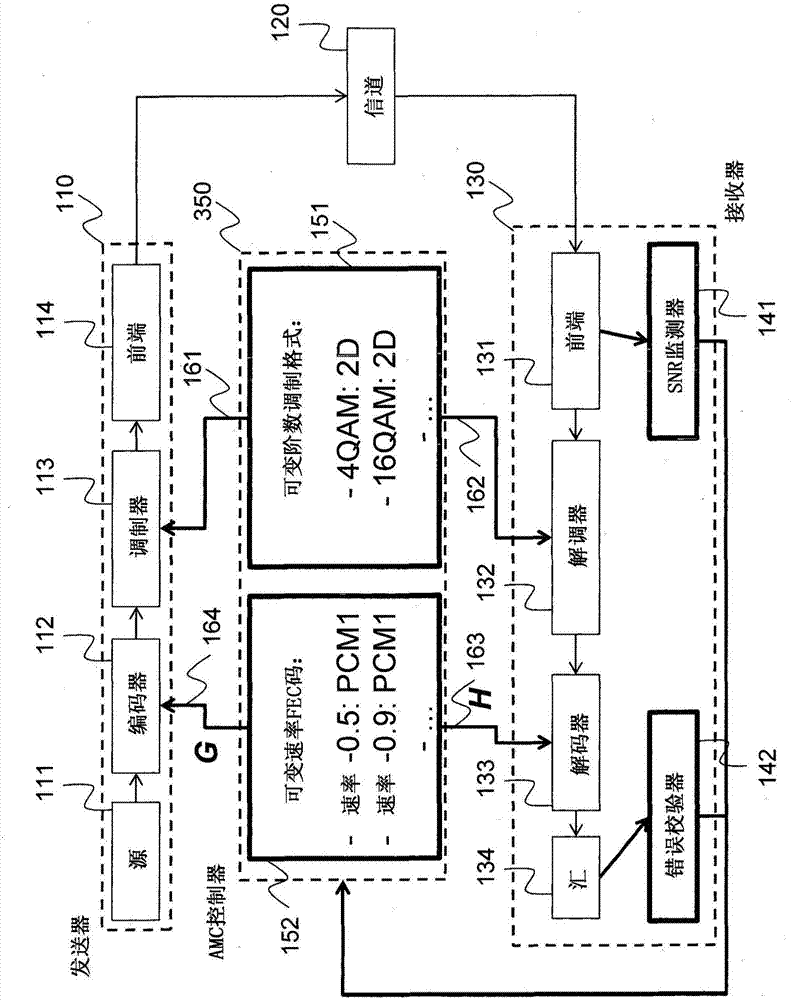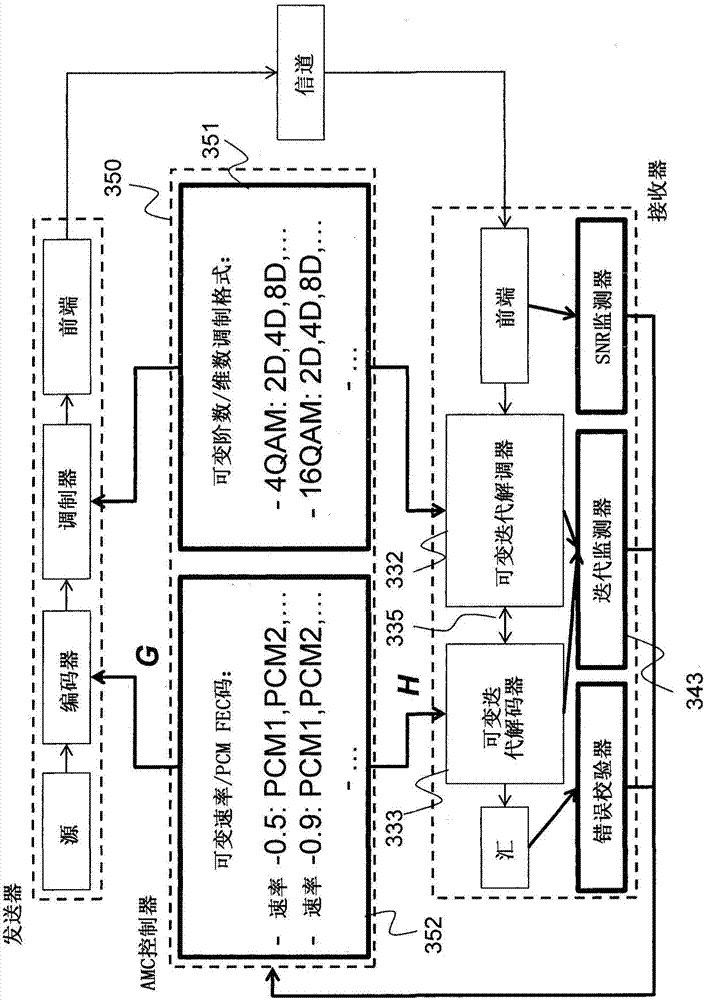Method for adaptive modulation and coding, AMC, and AMC controller
An adaptive modulation and coding technology applied in the field of error control coding to minimize power consumption and computational complexity
- Summary
- Abstract
- Description
- Claims
- Application Information
AI Technical Summary
Problems solved by technology
Method used
Image
Examples
Embodiment Construction
[0026] figure 1 A network is shown of an adaptive modulation and coding (AMC) controller 150 transmitting digital data from a transmitter 110 to a receiver 130 over a communication channel 120 using principles employed by some embodiments of the invention. The communication channel 120 includes, for example, fiber for optical communication, free space for visible light communication, air for radio communication, water for acoustic communication, coaxial cable for power line communication, and the like.
[0027] At transmitter 110, digital data from source 111 is encoded by an encoder 112 with a forward error correction (FEC) code (eg, such as a low density parity check (LDPC) code) into code words. For such a linear code, digital data s of length N-M is arithmetically multiplied by a generator matrix G 164 of size N*(N-M), which appends parity data p of size M that enables the receiver 130 to correct potential errors. The code rate is defined by R=1-M / N. The code word c is e...
PUM
 Login to View More
Login to View More Abstract
Description
Claims
Application Information
 Login to View More
Login to View More - R&D
- Intellectual Property
- Life Sciences
- Materials
- Tech Scout
- Unparalleled Data Quality
- Higher Quality Content
- 60% Fewer Hallucinations
Browse by: Latest US Patents, China's latest patents, Technical Efficacy Thesaurus, Application Domain, Technology Topic, Popular Technical Reports.
© 2025 PatSnap. All rights reserved.Legal|Privacy policy|Modern Slavery Act Transparency Statement|Sitemap|About US| Contact US: help@patsnap.com



